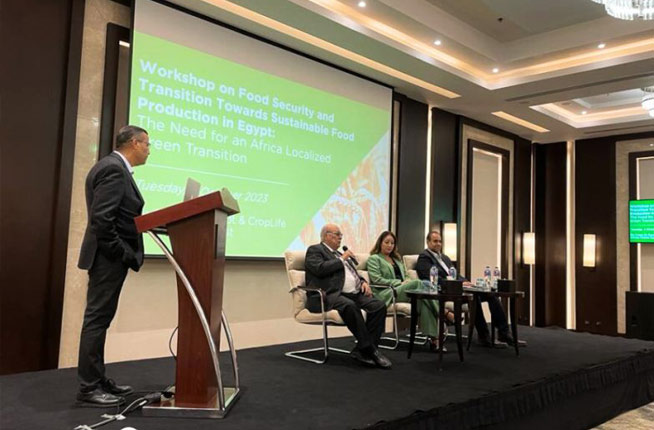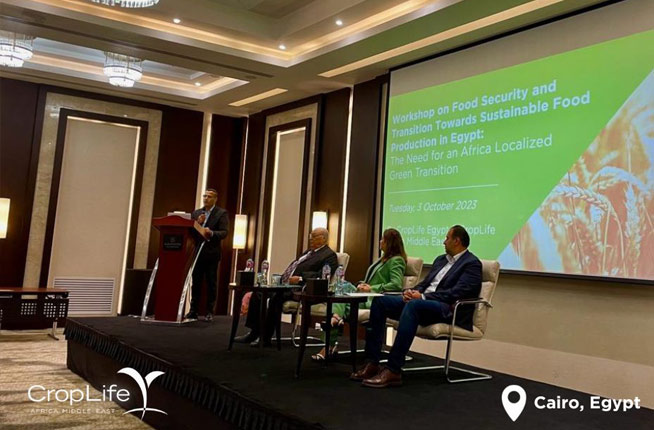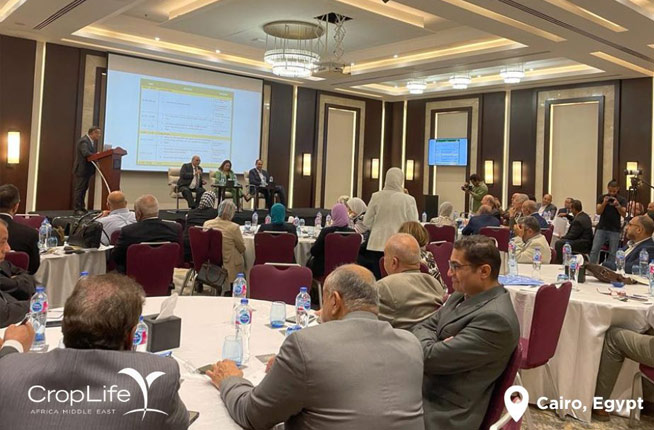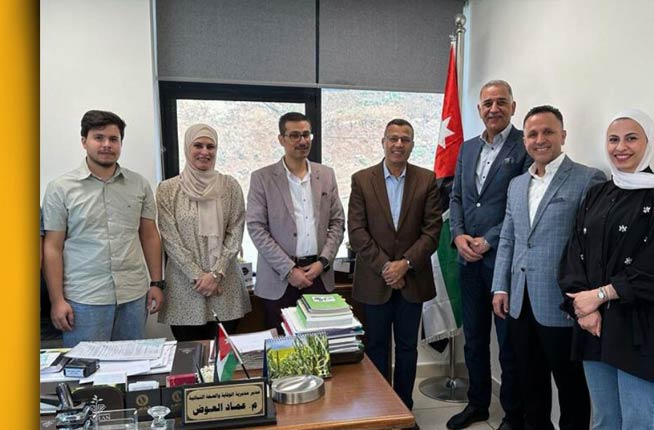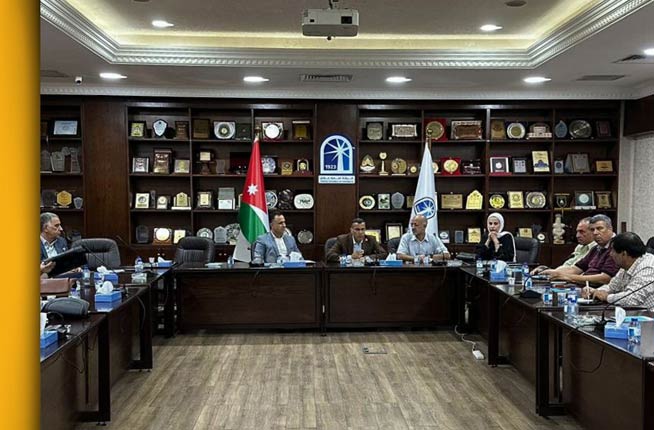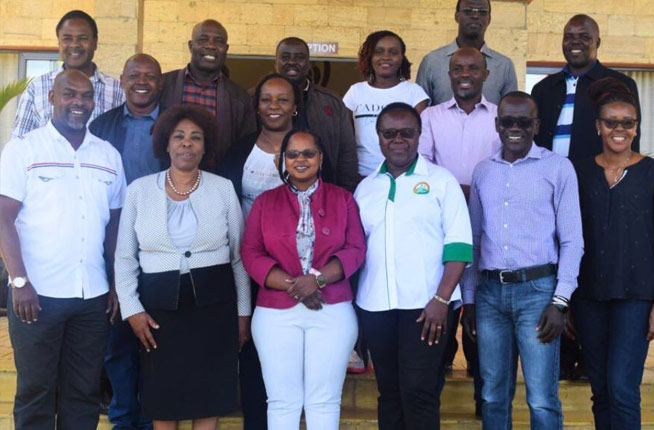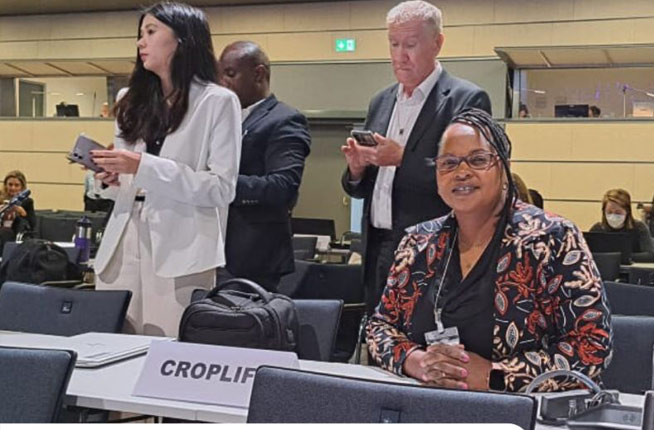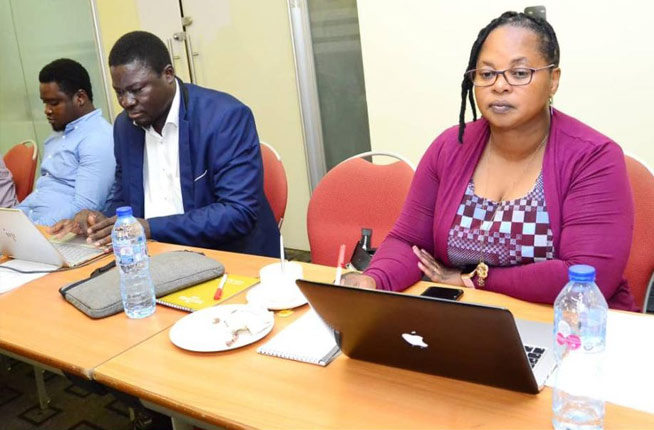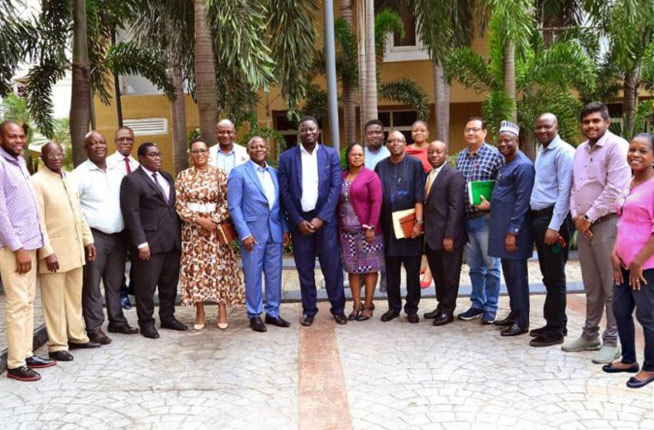On 3 October, CropLife Africa Middle East & CropLife Egypt co-hosted a workshop on ‘Food Security and Transition Towards Sustainable Food Production in Egypt: The Need for an African Localized Green Transition’, with actors across the food value chain.
CropLife AME was honoured to have as guest speaker Dr. Mohamed Abdel Megeed, Chairman of Agricultural Pesticide Committee (APC) Ministry of Agriculture and Land Reclamation, Egypt, who opened the workshop.
During the workshop, diverse Egyptian stakeholders, from the public and private sector involved in the food value chain, exchanged insights on tackling the mounting pressures on food production and trade in Egypt, partly attributed to the direct and indirect impacts of the EU Green Deal, while simultaneously promoting sustainable agriculture practices. Among the concerns raised by Egyptian growers, the most significant one was the constant reduction of their toolbox of viable solutions available to them; “we face difficulties as we have less and less solutions available to fight pests, and we are not provided with viable alternatives, making it more and more difficult to grow foods, therefore impacting our revenue stream and livelihoods”.
In light of these challenges, CropLife Africa Middle East noted being in favor of the EU Green Deal’s objectives; however, the implementation should be tailored to a country’s specificities. CropLife Africa Middle East calls for an Africa localized green transition while emphasizing the importance of maintaining a safe and secure supply of food which should be non-negotiable and which can be achieved by recognizing the role of plant science tools, including crop protection products and plant biotechnology, in sustainable agriculture and food safety.
Please see below for some additional key takeaway messages of the workshop:

